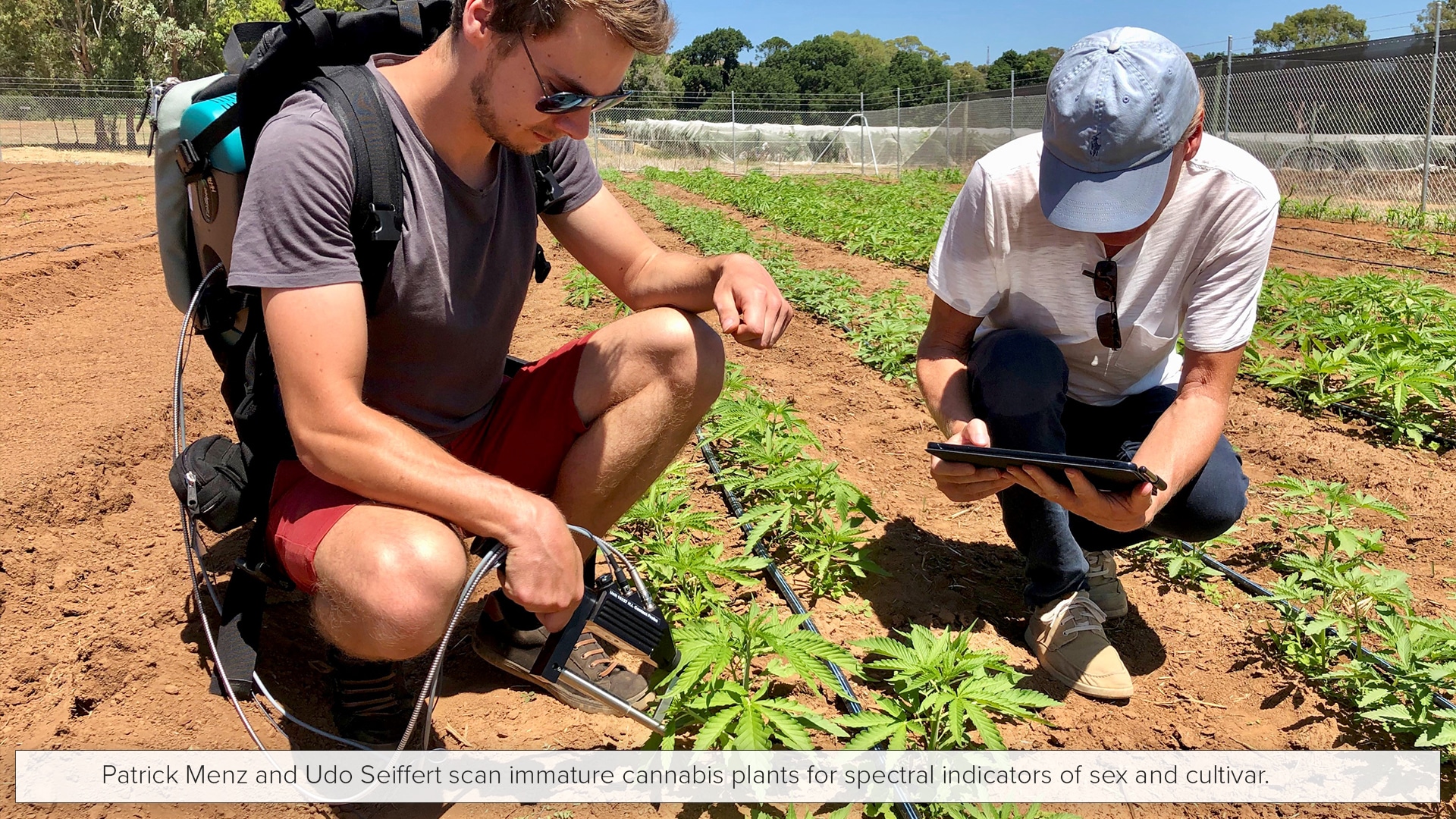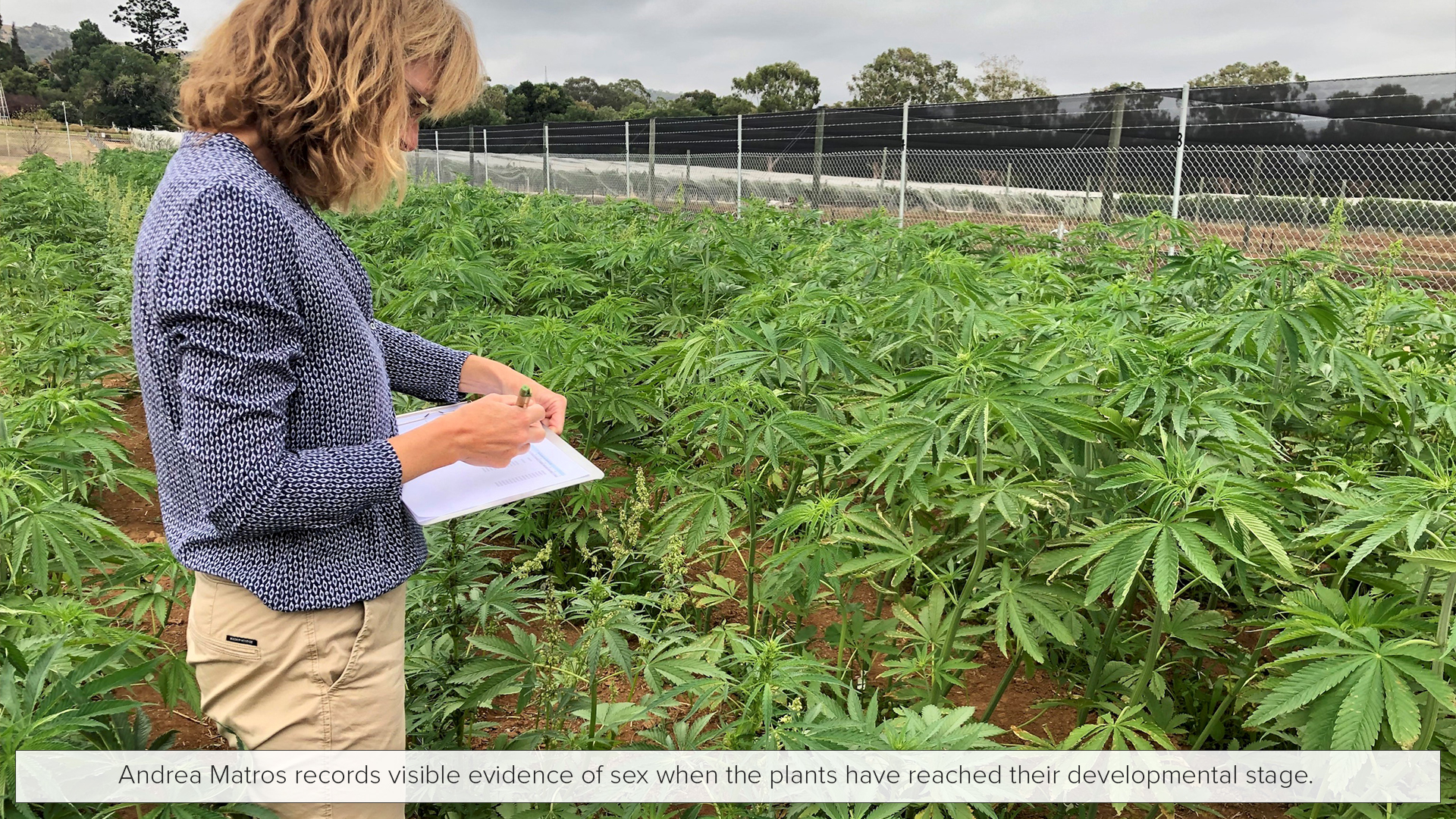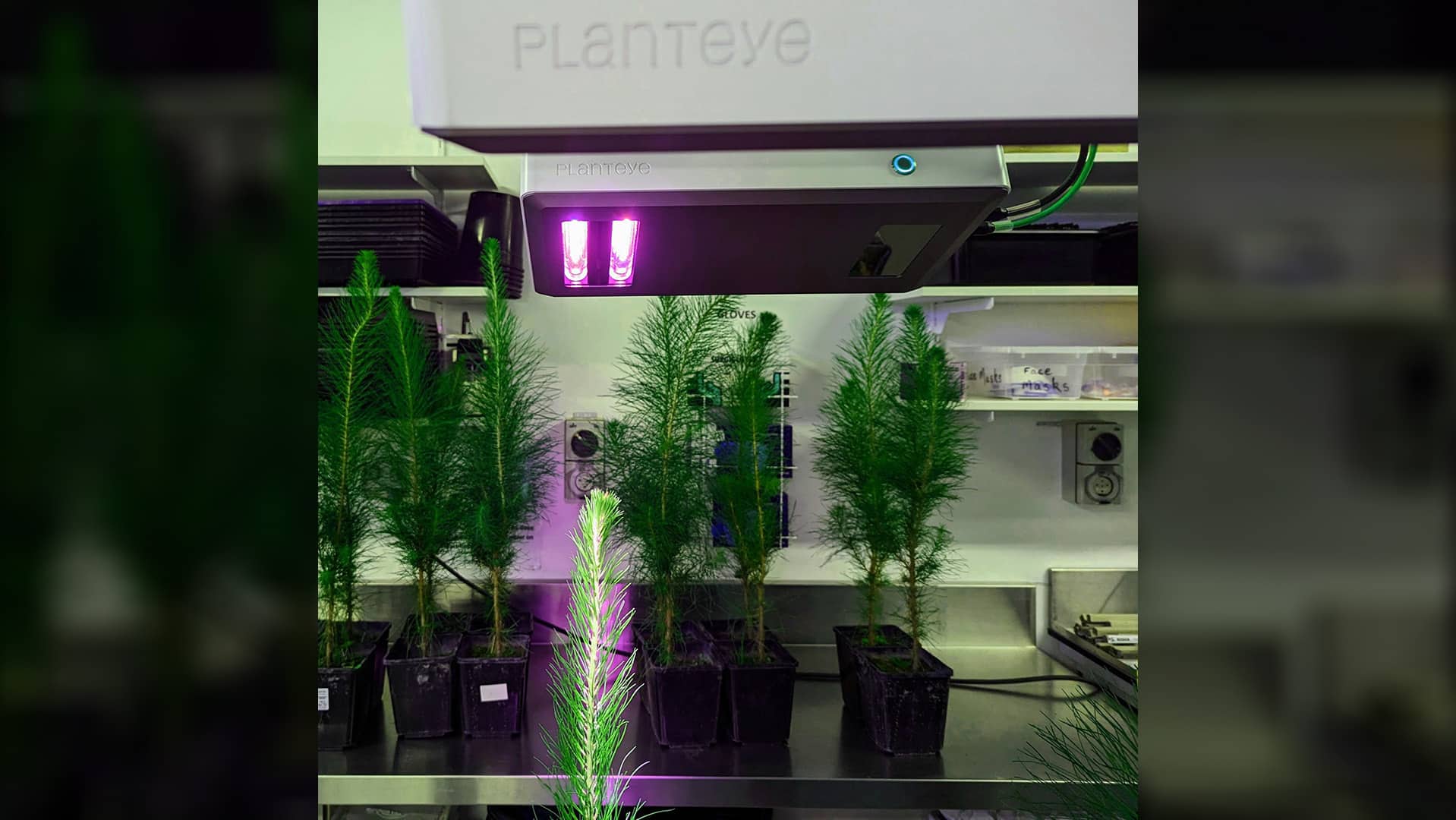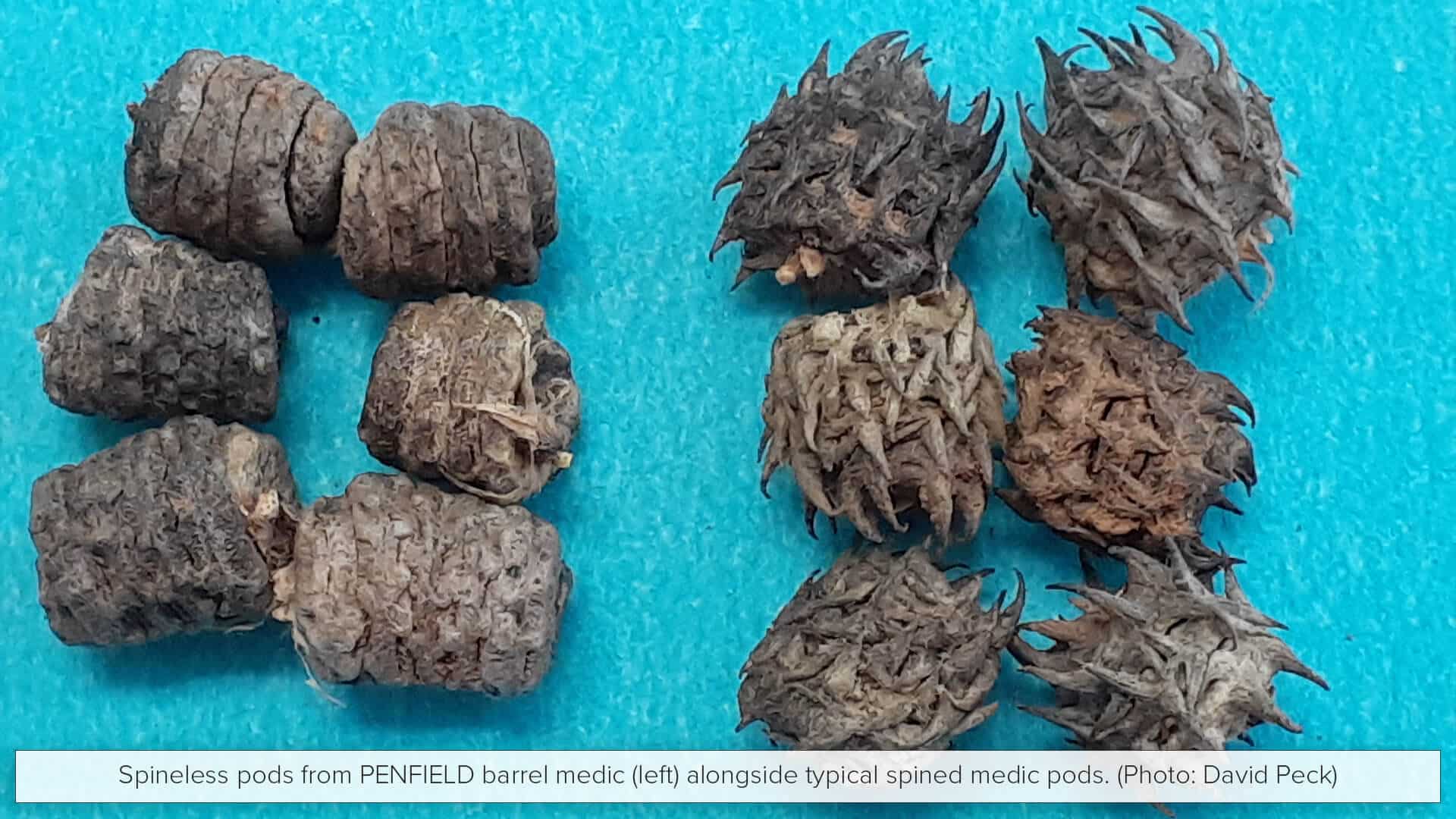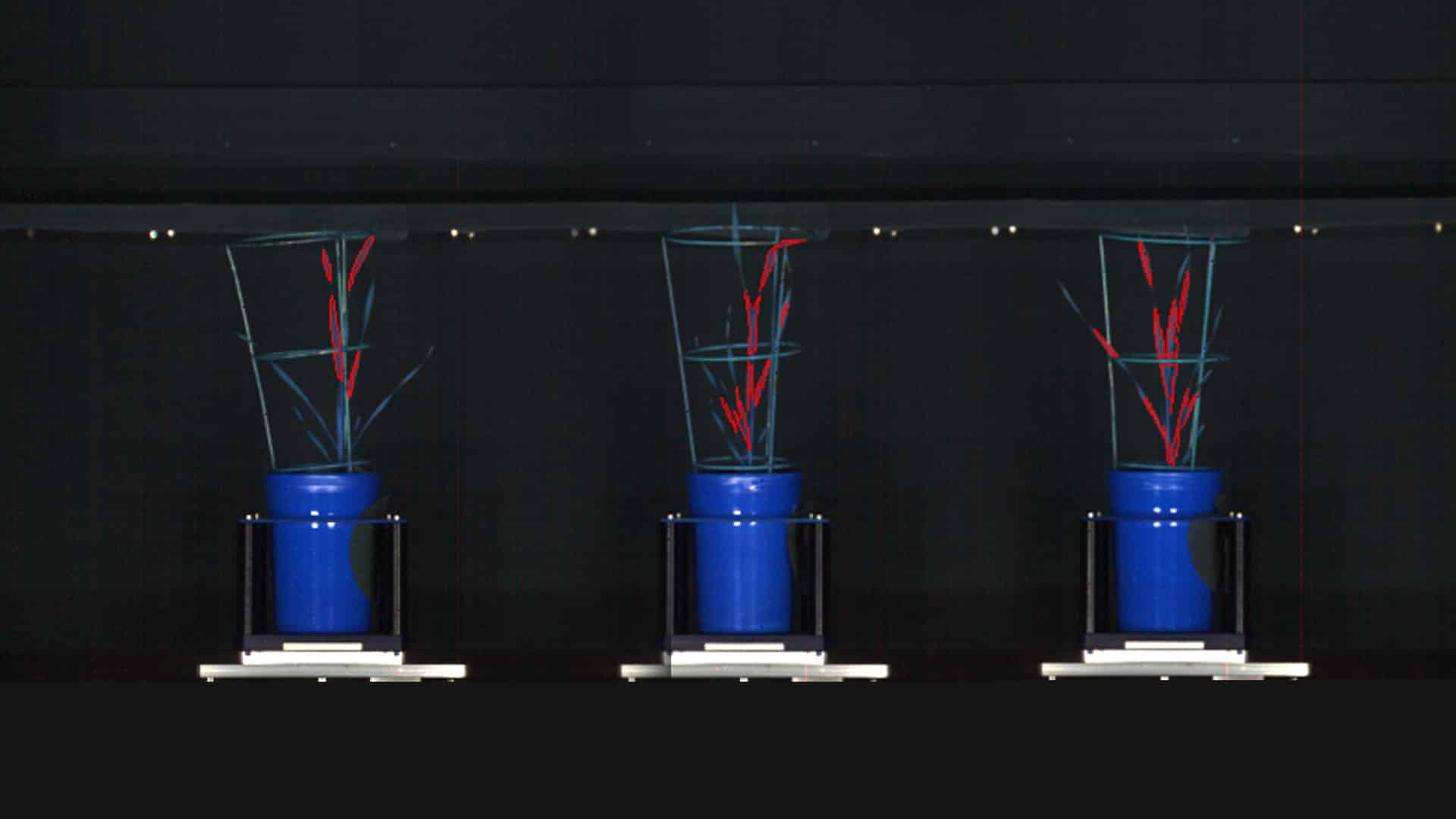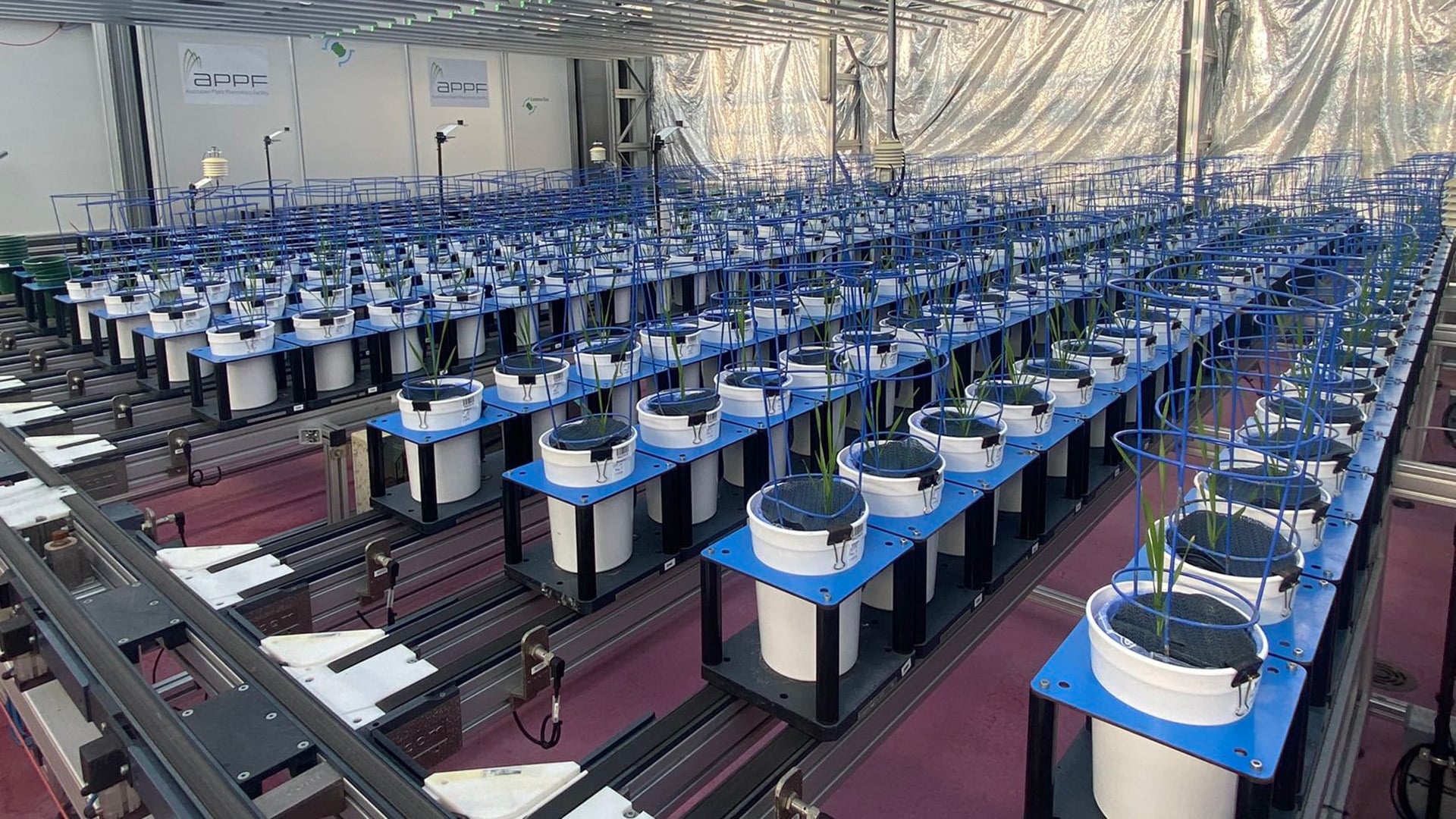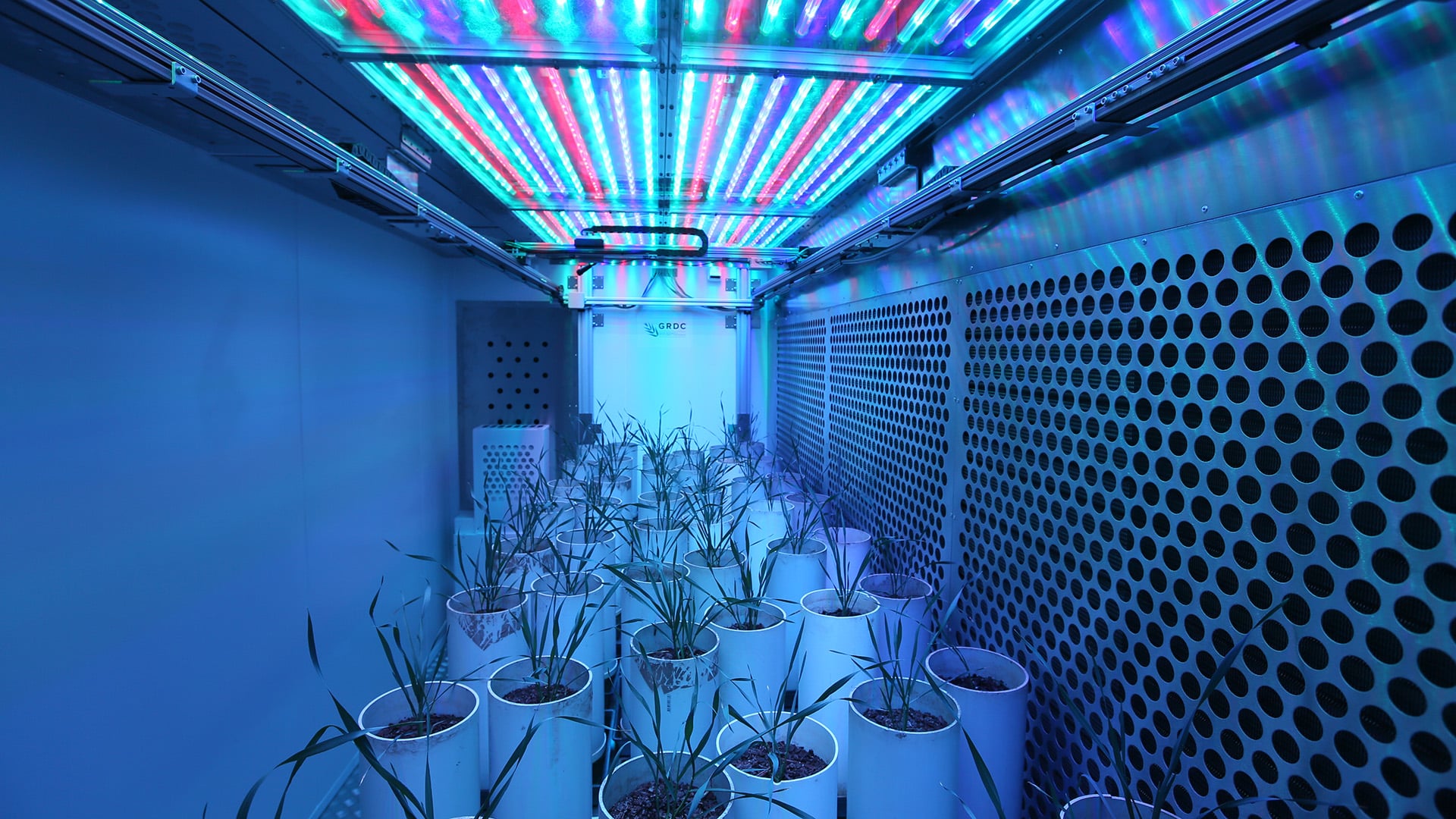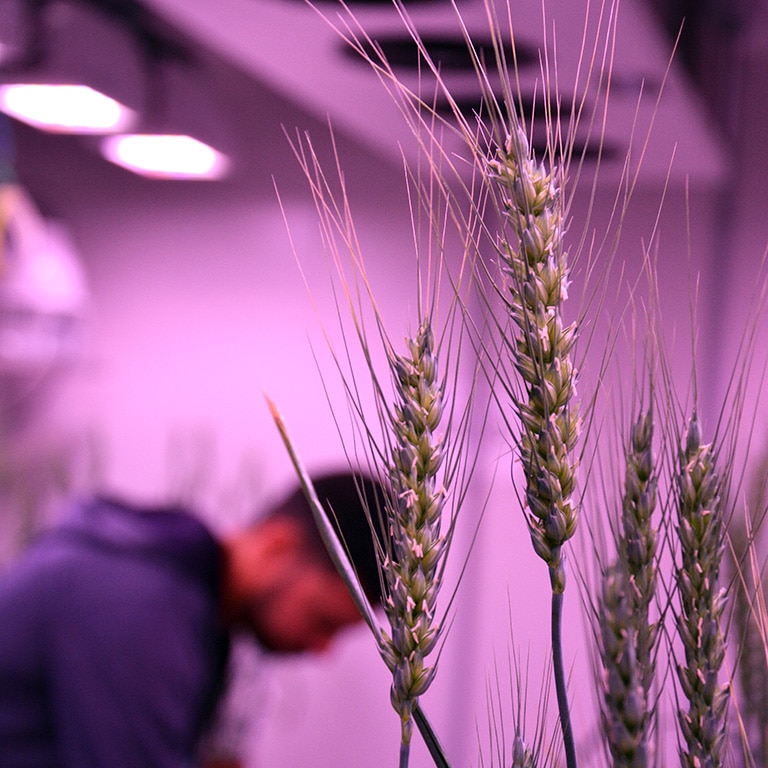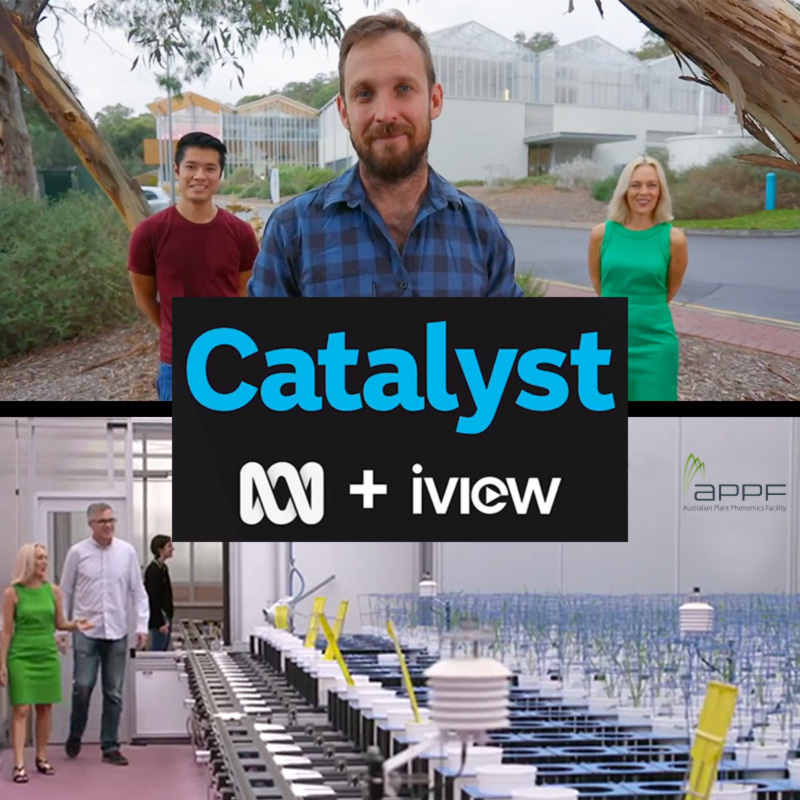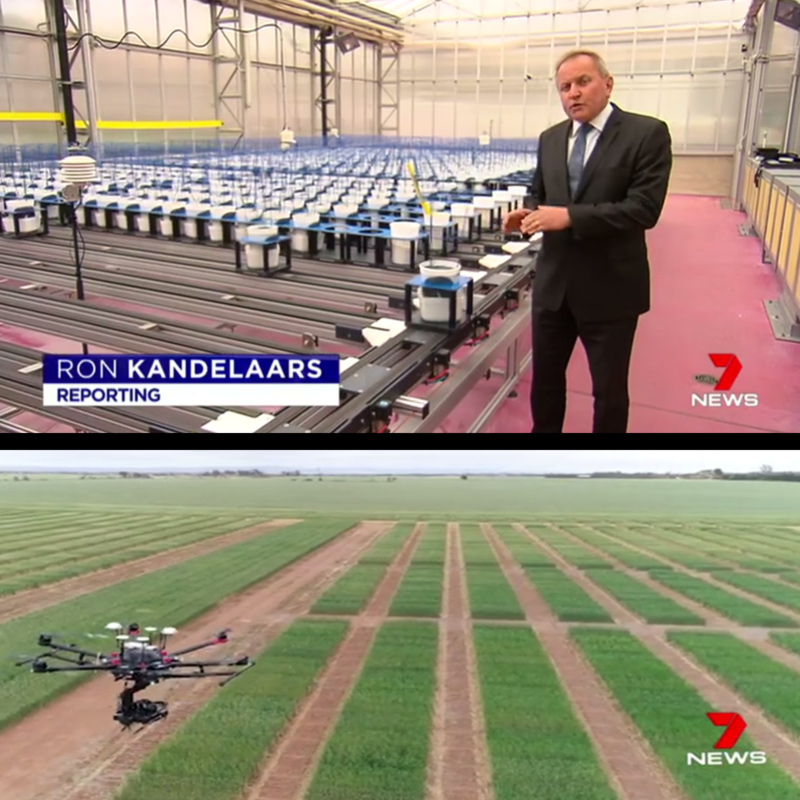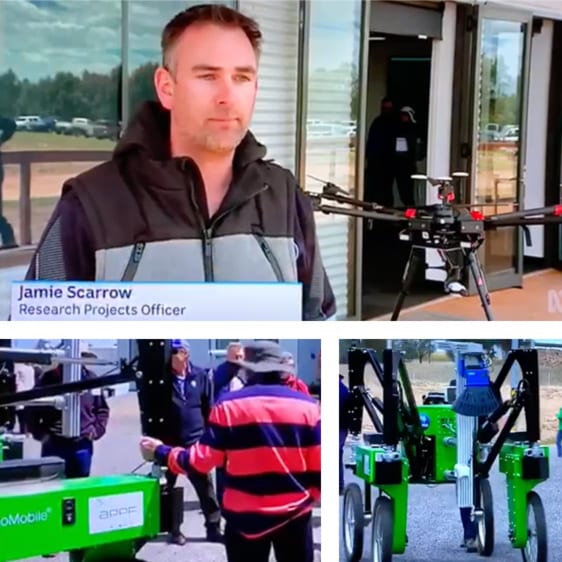News from our blog
Spectral scanning to improve hemp production
Research linked to the hyperspectral scanning capabilities of The Plant Accelerator®, Adelaide node of the Australian Plant Phenomics Facility (APPF), has established the viability of [...]
Evaluating biochar made from wastewater biosolids
Australian National University (ANU) post-doctoral Research Fellow Dr Wolfram Buss has been phenotyping Pinus radiata tree seedlings with APPF staff at our ANU node in [...]
Phenotyping can set the pace for horticultural crops
Our recent attendance at HortConnect 2023, at the Adelaide Convention Centre, left us inspired about the potential of phenotyping in horticultural crops. The annual event, [...]
TPA® supports successful SARDI pastures speed breeding
APPF controlled environment growth chambers at The Plant Accelerator® have proved invaluable to a South Australian Research and Development Institute (SARDI) project that bred new [...]
APPF helps map plant phosphorus use
Phosphorus, or simply ‘P’, is an essential nutrient for food crops and plays a critical role in photosynthesis, root growth, stem strength, flowering and grain [...]
Postgraduate researchers invited to use cutting-edge facilities
The Australian Plant Phenomics Facility (APPF) is inviting applications for its current round of Postgraduate Internship Awards. Due to APPF staff schedules, the usual May [...]
The APPF in the media
NBN News – “APPN-University of Sydney partnership blossoms”
The APPN University of Sydney Node staged its official launch as part of the annual University of Sydney Narrabri Plant Breeding Institute Open Field Day on Wednesday 11 September 2024.
CEO Richard Dickmann travelled north to join Node Director Dr William Salter, University of Sydney Dean of the Faculty of Science, Professor Marcel Dinger, academics and educators, plus over 200 local growers, agronomists and researchers from industry for the day. Dr Salter introduced the attendees to the new APPN infrastructure and end-to-end data support the node will offer. He was also able to demonstrate some of the new APPN drones, handheld sensors and ground-truthing physiological tools.
“It is incredibly exciting to launch our new node of the APPN here in Narrabri, one of the agricultural heartlands of Australia,” he said
Expanded plant phenomics facility to accelerate crop development
The Australian Plant Phenomics Facility (APPF), Australia’s national plant phenomics research infrastructure, will receive $60 million in core funding over the next five years to expand its world-leading network of facilities across Australia and accelerate the development of improved crops.
APPF headquarters is hosted by the University of Adelaide and supported by the Australian Government National Collaborative Research Infrastructure Strategy (NCRIS).
The $60 million NCRIS investment is planned to be matched by contributions from university partners, state governments and industry for a total investment of nearly $135 million.
Read more here:
APPF welcomes Richard Dickmann as new CEO
The Australian Plant Phenomics Facility (APPF), Australia’s premier national plant phenomics research infrastructure facility, is delighted to announce the appointment of Richard Dickmann as its new Chief Executive Officer.
APPF Board Chair, Dr. Ron Sandland, expressed his enthusiasm for Richard’s appointment.
“Following a competitive recruitment process, I am delighted that Richard has accepted this critical role,” he said.
“Richard’s hands-on experience and vision make him the ideal leader for our ambitious future.”
Read more here:
ABC Catalyst – “Feeding Australia”
The two-part series, Feeding Australia, was produced by the Catalyst team on ABC TV. In Part 2, Chef Paul West, Professor Clare Collins and Dr Noby Leong reveal how technology is set to transform food production, including talking with the APPF and Dr Trevor Garnett in Part 2 here (start from 44:30).
Feeding Australia – Part 1 “Foods of Tomorrow”, and Part 2 “A Sustainable Future”, are available to watch on ABC’s iView.
Preview here:
Channel 7 News – “Helping drought-stricken farmers”
As farmers across the country struggle with drought, researchers at the Australian Plant Phenomics Facility (APPF) and the University of Adelaide’s Waite Institute are developing wheat varieties resilient to climate change. They are improving genetic diversity and crop yields – and they are doing it using state-of-the-art drone technology and robotics.
Watch:
ABC News – “Opening of Boorowa Research Facility”
APPF technology used at the newly opened Boorowa Research Facility featured heavily in an ABC News announcement. See research drones and the APPF developed phenoMobile® in action, along with an interview with the APPF’s Jamie Scarrow.
Click to watch:

